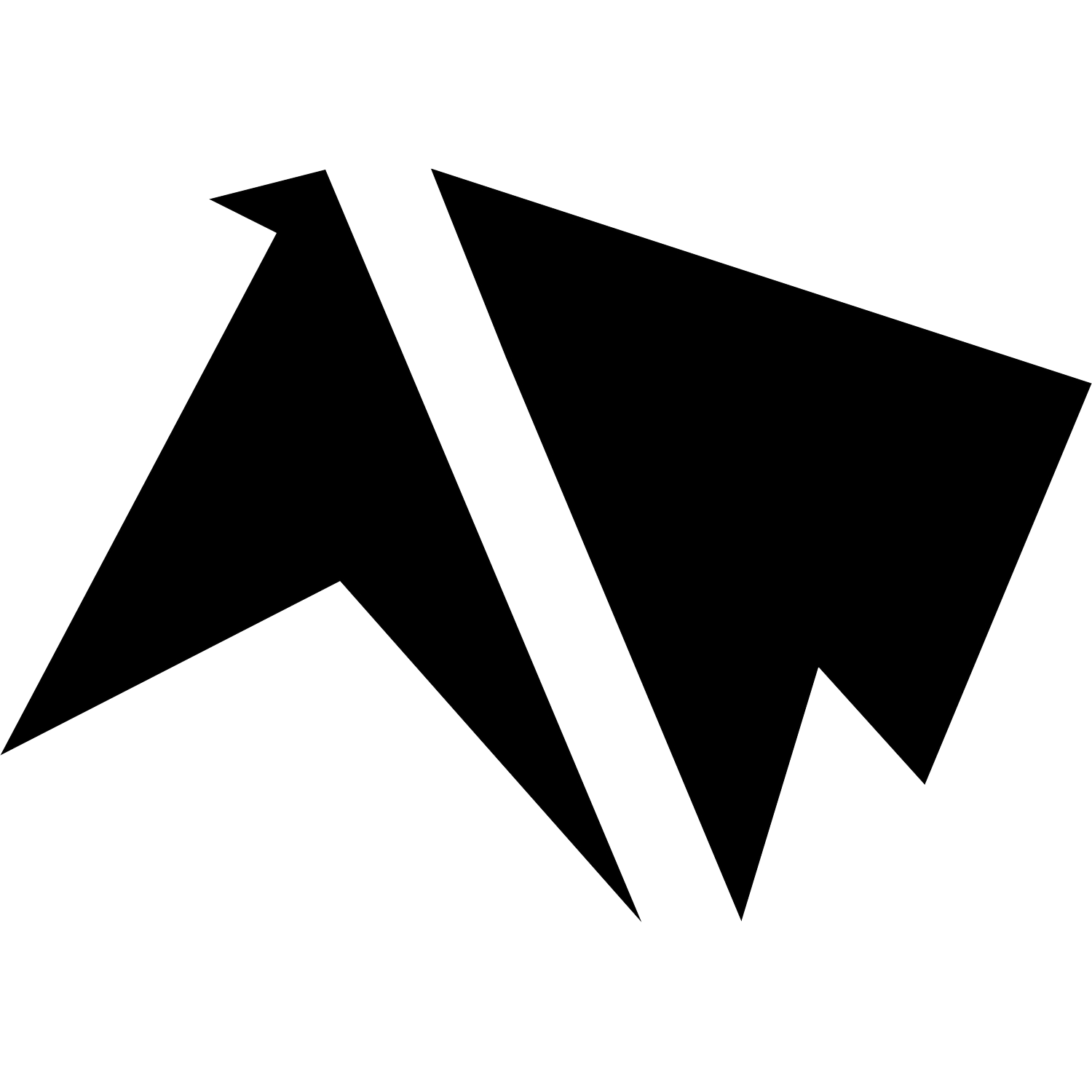Aurora McGunkin and Meg West sat down with Slouch to discuss the band's rise in popularity and plans for the future, and the importance of representation within the music scene at Wesleyan. All photos courtesy of Monica Sun.
How did you guys come together as a band?
Sallie: I love this one! So what happened we had been talking about forming a band, but it never really happened—but I told someone at a party that I would open a show for them without having a band together, and then totally forgot about it. And then I got a Facebook event and it was for us and I was just like, “Oh, shit…”
Shea: [Interjects, laughing] “I don’t have a band yet!”
Sallie: So then we had about five days. And we put our band together in five days to play the show. Super stressful.
Shea: I think how [Sallie and I] came together was that over the summer I had posted an Instagram video of me playing the drums and Sallie was like, “Hey, I saw this! Be in my band!” and then we forgot about it until she booked a show.
Sallie: And then Lucas, I think you were just around.
Lucas: I think I just wandered into the practice room with a bass, and then I was just like the token guy in the all girl band. With the bass.
That was for the PWR BTTM show right? That was really fun. What was it like to have only five days? Were you nervous? excited?
Lucas: I was stressed.
Sallie: Yeah, I reached new levels of stress, and, like, became a terrible person.
Lucas: That was definitely necessary for us [to] put songs together.
You work better under pressure?
Shea: I don’t know if it’s that we work better, it’s just that we only ever worked under pressure.
Sallie: It’s like a pop-up band.
Did you play covers for that show? What did you play?
Shea: Little Wing, Cut Your Bangs…
Sallie: Them Changes
Lucas: Hybrid Moments
Sallie: And a jam sesh.
Who would you say are some of your biggest musical influences as a band?
Lucas: All those good cover bands, like Led ZepAgain, The Fab Four…[laughs] What are other good cover bands?
Shea: I feel like because we haven’t fully thrown ourselves into trying to do original stuff, our sets or our sound or whatever, has just kind of come together based on the covers that we choose. Which I guess is kind of reflective of what our influences are. I mean Hendrix, Dirty Projectors…
Sallie: Yeah, I like playing Hendrix, so we played a Hendrix song.
Shea: It’s kind of like a combination of time constraints, the music we like, and what we can play.
So you guys said that you’re kind of like a pop-up band and you play together when you have a gig. How did you guys get to open for bands like PWR BTTM and Wild Belle?
Sallie: I think it has to do with the novelty of us being mostly girls. We’ve kind of been riding the “girl band” thing. I only have friends who are girls, so...
Lucas: Same, I only have friends who are girls.
Sallie: So I feel like that was a lot of it. With Eskimeaux it happened because I love Eskimeaux, and I was talking to Michelle, (who booked the show), and I think she was sort of throwing me a bone to let us open for them.
Shea: Eskimeaux was a really important show.
Sallie: She’s like my favorite person
Why the name Slouch? Any reason?
Shea: I was in my friend’s room and we were trying to come up with band names, and my friend had this poster in her room that said, “Slouch Life,” and it was of a person just hunched over her desk, and I was like “Slouch Life!” and Sallie was, like, “No, Slouch. Concise. I’m into the one word names."
Lucas: And I definitely slouch a lot.
Sallie: I have bad posture.
Shea: I feel like slouching is my spirit gesture.
What are some of your favorite campus concert memories?
Lucas: Titus Andronicus last year--I had a lot of fun. Mostly because I was really drunk and it was my first time ever crowd surfing. [Laughs.] For those two reasons, that is my favorite campus memory. Of music.
Shea: PWR BTTM was just the coolest thing because I had played in bands before in high school and stuff but this was the first time that I had played in college with a group, and I had forgotten how much I really loved that. It was definitely one of the highlights of my Wesleyan career because it was just so unexpected. It was just thrown upon us and they were so nice to us and so fun.
Sallie: Yeah, I agree. I had never played in a band or anything before, but you know it was just the low key fantasy of getting play in front of people. Playing shows added a whole new element to how I experience music at Wesleyan. And also Alex G last year. That was the first time I saw someone that I had never seen before who later became one of my favorite bands.
At the PWR BTTM show, the band talked a lot about creating a safe concert environment. Do you guys think that artists have a responsibility to play an active role in creating more inclusive and safe spaces at shows?
Shea: I do think the artist has a lot of agency; Eskimeaux got on stage, and Gabrielle was basically like, “STFU or GTFO”. Like this was the kind of thing where she wanted you to sit and she wanted you to listen.
Sallie: Yeah, and also, if someone is dancing on you and you don’t want that, she was saying that it was important to be aware of how you are acting in the space.
Shea: And I think that that’s really powerful because, especially if you really love the artist, you don’t want to be the person that they are calling out. So I think that it’s very cool to see artists use that agency.
This year, it seems like there’s a lot of talk about changing things on campus. Do you think the music scene at Wesleyan needs to change in any way? And if so, what would you like to see happen? As freshman, we have heard that the music scene used to be something that it isn’t right now.
Sallie: I think more girl bands. More girls doing music, and not even in the way of like, “This is a girl band, look at this girl band playing music as girls,” like that’s fun, but just having that be secondary.
Shea: Girl bands where it’s not “being girls” as a niche thing.
Sallie: It’s so exciting to see girls play music.
Shea: It really is, especially because this is my first time playing in a band with even one other girl. You don’t think that it makes that big of a difference, but it kinda does.
Meg: I think it makes a difference to see it, also, as a girl. When I see you guys, then I’m like, “Yeah, I can do that,” so representation makes it feel more comforting.
Sallie: We hit the tail end of the golden age of Wesleyan music, but I think there were more campus bands people were excited about last year, but a lot of them graduated, so we kind of missed that.
Lucas: I still think that people do a great job of bringing artists that they like here.
Because you guys are a band with girl members, which isn’t as represented on campus unfortunately, do you feel any sort of pressure or responsibility to represent girls in any way?
Shea: I don’t think we take on any of that, because we’re not making a statement, we’re just playing music.
[Enter Kafilah, bombarded by repeated questions from Aural Wes and Slouch.]
Lucas: Kafilah, girls and bands, what do you think?
Sallie: Do you feel any pressure to represent girls? How do you feel about girls and music?
Lucas: 3, 2, 1, go.
Kafilah: Girls are great. There should be more representations of girls in all forms of music, not only in bands, but in technical aspects as well.
Shea: I didn’t think about us as a band with girls until I realized that we were like one of the only band with girls, so then it became a thing that we thought about.
Sallie: I think it’s just that: if you don’t see it, you don’t do it. Although I do feel like in playing guitar I’m more… I don’t know. Guys are kind of condescending about that stuff, and about girls playing guitar. They’re like, “Oh, look at you trying.”
Kafilah: Representation is SO important.
What’s up next for Slouch? What are your plans for this semester?
Kafilah: Regular band practices. Kafilah learns how to play an instrument.
Sallie, laughing: Next episode, “Kafilah learns to play an instrument.”
Kafilah: More shows.
Lucas: Original music.
Sallie: But yeah, I think a big thing is regular practices.
Shea: Yeah, we’ve all been kinda hard to tie down. Kafilah’s a busy girl.
Sallie: Kafilah did me a really big solid for our last show, because she was also doing another show that night -
Kafilah: I DJ.
Sallie: Yeah, so I kinda forced her to do our show too. She was like, “No I really can’t,” but I said, “You have to do this for me.”
Kafilah: I love Sallie. I will do anything for Sallie Fucking Fullerton. Anything.
Sallie: I will hold you to that.
Kafilah: I will. I swear… How are you guys?
Sallie, to Meg: You’re a girl in a band too.
Kafilah: How do you feel about that?
Meg: I was interested to know what you guys thought because I felt like people were consciously looking for bands with girls to open shows. I hadn’t played a lot of gigs before I came to college, and now I’m in this band and we’ve played two weekends in a row. It's crazy to me that I can be play in front of people and that people are actively looking for it. So in my eyes it seems like they are making an effort to do it. But I also feel like there’s not a lot to pick from, so I wouldn’t want it to compromise variety.
Kafilah: But I also think that’s so important because if you don’t force people to be inclusive, then they won’t be inclusive, which is why a lot of things are really whitewashed or really male.
Sallie: We just definitely lucked out, because I know a lot of people in bands too, and they try so hard to get visibility and shows and it’s pretty frustrating to them because we’re constantly getting asked and we just play covers.
Kafilah: But I think that we also have to think about how our band changes the way that other people relate to us on campus and representation in general - like, how many girls of color are there in bands on this campus? Not many. So maybe other girls of color will be like, maybe I can do this. Or they see Shea and Sallie shredding and can say, “Oh, I can do this too.” And that’s really important.
Meg: I think that that’s also an instant gratification thing, and representation has long term benefits for people watching the shows, so that’s what I try to say when this comes up when people ask why we’re getting asked to play shows.
So, famous last Slouch words?
Lucas: Follow me on Soundcloud.
Kafilah: WAIT actually, follow me on Soundcloud.
Sallie: Follow Kafilah and Lucas on Soundcloud.







